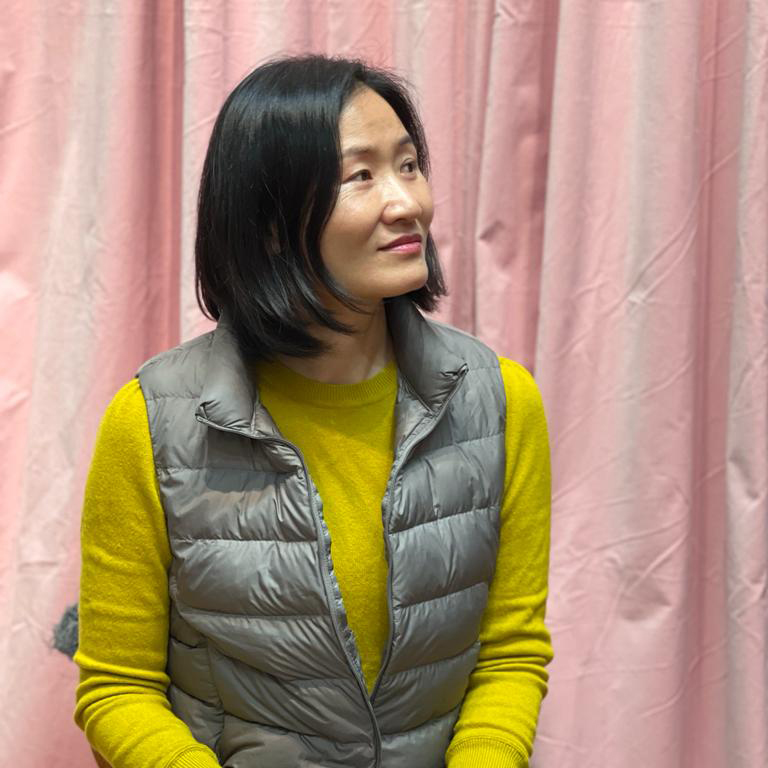
We are pleased to announce that the winner of the 2024 Christine Wilson graduate award is Minny Lee, for her essay entitled “Korean Buddhist Temple Food: The Embodiment of Buddhist Philosophy and Buddhist Practice.” Reviewers were impressed by Lee’s skilled ethnographic work and interesting observations on food and culture, including that in the context of Korean Buddhist Temple food, “taste … is not the goal … [rather] when it is properly executed … mindfulness makes delicious dishes.”
Minny Lee is a recent graduate of Columbia University’s Graduate School of Arts and Sciences (Master of Arts in Sociocultural Anthropology). Her master’s thesis, “Korean Buddhist Temple Food: The Embodiment of Buddhist Philosophy and Buddhist Practice” explores the essence of Korean Buddhist temple food as practiced by Buddhist nuns in South Korea. Originally a religious culinary tradition, Korean Buddhist temple food has been commodified and embraced worldwide, providing laypeople the opportunity to learn through various temple food educational programs. The central question of Minny’s thesis is: what accounts for the significant difference in taste between temple food prepared by Korean Buddhist nuns and that made by laypeople under the guidance of these nuns? To address this question, Minny conducted summer fieldwork at Buddhist nunneries and Buddhist temple food educational centers in South Korea. She also drew on her experiences from attending temple food events since 2018.
Minny argues that the embodiment of Buddhist philosophy and Buddhist practice fosters an attitude of compassion and appreciation and that this spiritual development is the reason for the differences in meal preparation and execution between nuns and laypeople. Minny challenges the common notion that Korean Buddhist temple food is simply “a healthy vegan diet” by analyzing the distinctions between veganism and Buddhist foodways. The Buddhist precept of non-violence and the law of karma support the concept of interconnectedness among all beings, thereby cultivating a plant-based diet. Minny plans to further explore sensory anthropology; the mind-body relationship within the context of food as meditation; and the ways in which materiality is spiritualized and spirituality is materialized. A recipient of Weatherhead East Asian Institute summer research grant (2023), Minny has presented her papers at the New York Conference on Asian Studies (Syracuse University, 2022) and the AAS-in-Asia Conference (Universitas of Gadjah Mada, 2024). She is also scheduled to present at the Western Conference of the Association for Asian Studies (Weber State University, 2024). A portion of her thesis is set to be published in a book on Korean religions.
Prior to her studies in anthropology, Minny was a multimedia artist (minnylee.com), educator, and curator. Through a chance encounter with the Mauna Movement—opposing the construction of the Thirty Meter Telescope on the summit of Mauna Kea in Hawaii—Minny learned about Native Hawaiian history and culture. She undertook a year-long documentary project about the Movement. The resulting book and video were featured in the exhibition and symposium, The Climate Emergency in 50 Rounds, at Fotobokfestival Oslo (2020). Her Mauna project inspired her to study anthropology. Minny also holds an MA in Art History from the City College of New York and an MFA in Advanced Photographic Studies from ICP-Bard College. She has taught photography and bookmaking classes at the University of Hawaii at Manoa, Honolulu Museum of Art, Datz Museum of Art, and International Center of Photography. Her artist books, Encounters (2015) and Million Years (2018) are in many public collections, including the New York Public Library and the Poetry Center at the University of Arizona.







